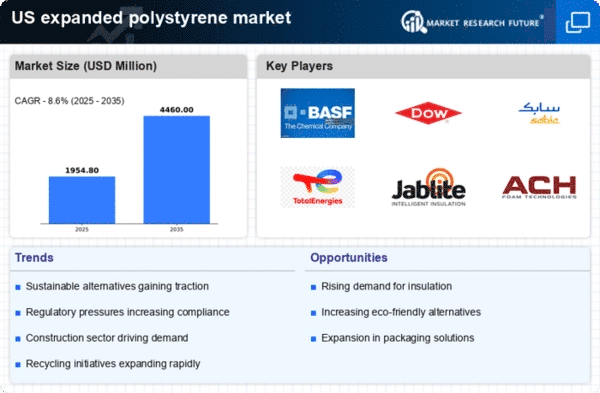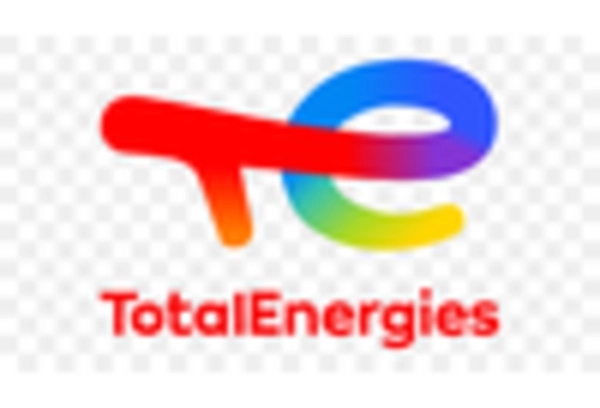The expanded polystyrene market is currently characterized by a competitive landscape that is both dynamic and multifaceted. Key growth drivers include increasing demand for lightweight packaging solutions, insulation materials, and the ongoing push for sustainable alternatives. Major players such as BASF SE (DE), Dow Inc. (US), and TotalEnergies SE (FR) are strategically positioned to leverage innovation and sustainability in their operations. BASF SE (DE) focuses on developing eco-friendly products, while Dow Inc. (US) emphasizes digital transformation and supply chain optimization. TotalEnergies SE (FR) is actively pursuing partnerships to enhance its product offerings, collectively shaping a competitive environment that prioritizes sustainability and technological advancement.In terms of business tactics, companies are increasingly localizing manufacturing to reduce transportation costs and enhance supply chain efficiency. The market structure appears moderately fragmented, with several key players exerting considerable influence. This fragmentation allows for niche players to thrive, while larger companies consolidate their market share through strategic acquisitions and partnerships. The collective influence of these key players fosters a competitive atmosphere that encourages innovation and responsiveness to market demands.
In October Dow Inc. (US) announced a significant investment in a new manufacturing facility aimed at increasing production capacity for expanded polystyrene products. This strategic move is expected to enhance their market presence and meet the growing demand for sustainable packaging solutions. The investment underscores Dow's commitment to innovation and positions the company to capitalize on emerging market opportunities.
In September BASF SE (DE) launched a new line of bio-based expanded polystyrene products, which are designed to reduce environmental impact. This initiative aligns with global sustainability trends and reflects BASF's strategic focus on developing eco-friendly materials. The introduction of these products may strengthen BASF's competitive edge by appealing to environmentally conscious consumers and businesses.
In August TotalEnergies SE (FR) entered into a strategic partnership with a leading technology firm to enhance the digital capabilities of its expanded polystyrene production processes. This collaboration aims to integrate advanced analytics and AI into manufacturing, potentially improving efficiency and reducing waste. Such strategic alliances are indicative of a broader trend towards digitalization within the industry, which is likely to redefine operational standards.
As of November current competitive trends are increasingly defined by digitalization, sustainability, and the integration of AI technologies. Strategic alliances are shaping the landscape, enabling companies to enhance their capabilities and respond to evolving market demands. Looking ahead, competitive differentiation is expected to shift from price-based competition to a focus on innovation, technology, and supply chain reliability. Companies that prioritize these elements are likely to emerge as leaders in the expanded polystyrene market.
















